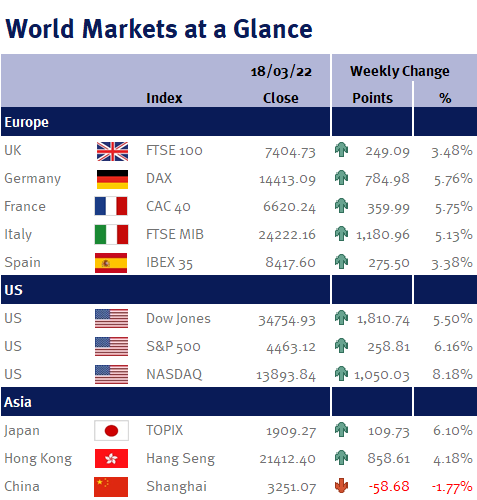We have had a week packed full of central bank monetary policy meetings, coupled with tentative progress in talks between Russia and Ukraine (neutrality) – which was not only positive for global equity markets, but it also helped take some of the speculative heat out of the oil price, which at one point this week traded back below $100 a barrel, compared to nearly $140 earlier this month.
In the US, Fed policymakers increased US interest rates by 0.25% – which was less than recent market speculation.
However, the accompanying ‘dot-plot’ (which shows the current view of where interest rates should go for each of the 18 Fed officials), was more hawkish than expected as it now suggests that policymakers will increase US interest rates by an average of 0.25% at each of the remaining six meetings in 2022.
Thankfully, the Fed dot-plot isn’t a forecast, let alone a commitment, it is simply the current view of the Fed officials, some of which aren’t voting members – and as such we are very sceptical we will see this magnitude of monetary tightening.


